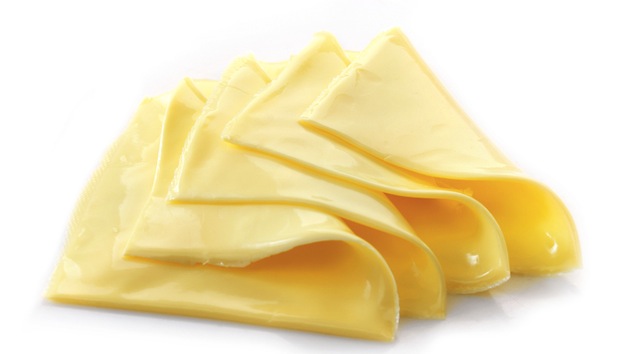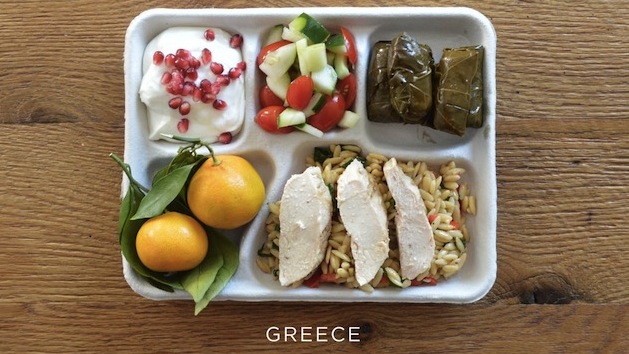
<a href="http://www.shutterstock.com/cat.mhtml?lang=en&language=en&ref_site=photo&search_source=search_form&version=llv1&anyorall=all&safesearch=1&use_local_boost=1&searchterm=processed%20cheese&show_color_wheel=1&orient=&commercial_ok=&media_type=images&search_cat=&searchtermx=&photographer_name=&people_gender=&people_age=&people_ethnicity=&people_number=&color=&page=1&inline=150235274">MaraZe </a>/Shutterstock
Kraft can’t call its individually wrapped, orange-colored slices “cheese,” at least not precisely. Hell, it can’t even use the phrase “pasteurized process cheese food,” because the Food and Drug Administration requires products with that designation be made up of at least 51 percent real cheese. Instead, Kraft’s American singles bear the appetizing appellation “pasteurized process cheese product,” because in addition to cheese, they contain stuff like milk protein concentrate and whey protein concentrate.
But the processed-food giant can proudly display the Academy of Nutrition and Dietetics‘ “Kids Eat Right” seal on the label of its iconic American Singles, reports the New York Times‘ Stephanie Strom. In fact, the plastic-wrapped slices are the first product to earn the Kids Eat Right endorsement, Strom adds.
That a bunch of professional nutritionists would hail imitation cheese as ideal kid food might seem weird—but not if you read this 2014 piece by my colleague Kiera Butler, who attended the annual meeting of the Academy of Nutrition and Dietetics’ California chapter. McDonald’s catered the lunch, and the Corn Refiners Association—trade group of high-fructose corn syrup manufactures—ran a panel on the benefits of “Sweeteners in Schools,” Butler reported.
Then there’s this 2013 report from the food industry lawyer and researcher Michele Simon, which documented the strong and ever-growing financial ties between the Academy and Big Food companies, including Kraft.
Marketing the singles directly to parents through the Kids Eat Right label may be part of the company’s effort to revive the fortunes of its legacy brands. Last month, the company’s new CEO, John Cahill, declared that 2014 was a “difficult and disappointing year,” and announced the departure of the company’s top execs for finance, marketing, and R&D.
In the end, though, slapping a kid’s health label on such a highly processed food may do more to damage the Academy of Nutrition and Dietetics’ brand than bolster Kraft’s.















